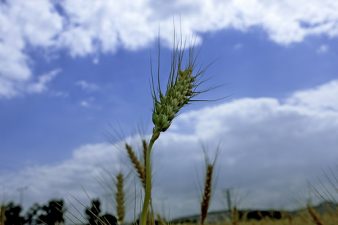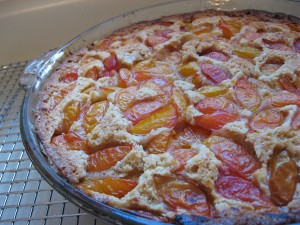 Beduin coffee in Israel. Consumption is on the rise, and in demand is the sustainable, fair trade, organic variety. Image via Robert Scoble.
Beduin coffee in Israel. Consumption is on the rise, and in demand is the sustainable, fair trade, organic variety. Image via Robert Scoble.
In celebration of the year 2010- the International Year of Biodiversity- the environmental charity Earthwatch hosted a lecture on Farming and Sustainable Environments at the Royal Geographical Society, London, on March 17.
One of the speakers, Dr. Mark Chandler, presented his latest pioneering research project entitled “Costa Rican Coffee from Community to Cup. His study-examining ways to minimise soil erosion, whilst maintaining high yields of coffee, addresses issues at the heart of the controversial debate between modern agricultural production and the preservation of healthy ecosystems. And it has significance to the Middle East country of Israel.
So far, his study reveals that the over-utilization of fertilizers is not only detrimental to the environment, but can also significantly decrease coffee yields over time.
Coffee is one of the world’s most widely consumed beverages, and the sixth most traded agricultural product. Traditionally grown under a shade canopy, modern-day intensive (also known as ‘sun coffee’) production and its associated synthetic fertilizer regime, has increasingly led to high rates of soil erosion and biodiversity loss. Over-using fertilizers can increase soil acidity while decreasing the amount of essential nutrients in the soil.
According to Dr. Chandler, this project helps to understand and solve pressing environmental problems since it engages both consumers and producers. Earthwatch scientists and volunteers help map water resources and biodiversity indicators, while local farmers are simultaneously kept informed and respectively given guidance throughout the entire process.

The crop of great global significance is also of great particular national significance to Israel –the small nation on a rather big caffeine rush. Coffee consumption in Israel surpasses that of the United Kingdom and Japan- and it continues to increase at an annual rate of 6.9%.
The Strauss Group, headquarted in Petach Tikva (and which says it will use its leftover coffee beans for biofuel), has become a major player in the $40 billion global coffee market. Just over five years ago, the company merged its coffee activity with Santa Clara Indústria e Comércio de Alimentos, Brazil’s second largest coffee manufacturer. It is currently expected to be one of the top five coffee companies in the world within the next two years.
It is important then to recognize that Israel’s coffee mug holds considerable leverage in promoting agricultural sustainability in the Americas, and other regions where coffee is produced (in areas typically known to have high biodiversity). Thankfully, in the city that never sleeps (though not exclusively), there are signs that suggest that with the general growth of coffee shop culture in Tel Aviv (see post on LoveEAT organic coffee cafe in Tel Aviv), there has also been a rise in demand for organic, shade-grown coffee.
As some of us are found guilty of refilling our 4th cup of coffee before midday, we should all be mindful that sustainable production goes hand –in-hand with sustainable coffee consumption.
Perhaps we can acquire our much needed energy boast in other ways? If getting a couple more hours of sleep doesn’t help, driving down one of Israeli’s chaotic highways is certainly bound to wake someone up.
Update 2022: in a strange greenwashing campaign, Nespresso has earned B Corp status. Current members including Dr. Bronner’s CEO, are outraged.
Read more on sustainable coffee:
A Natural BreathMint Made from Coffee
Elite Uses Great Smelling Coffee to Make Green Energy
Green Your Coffee Break



